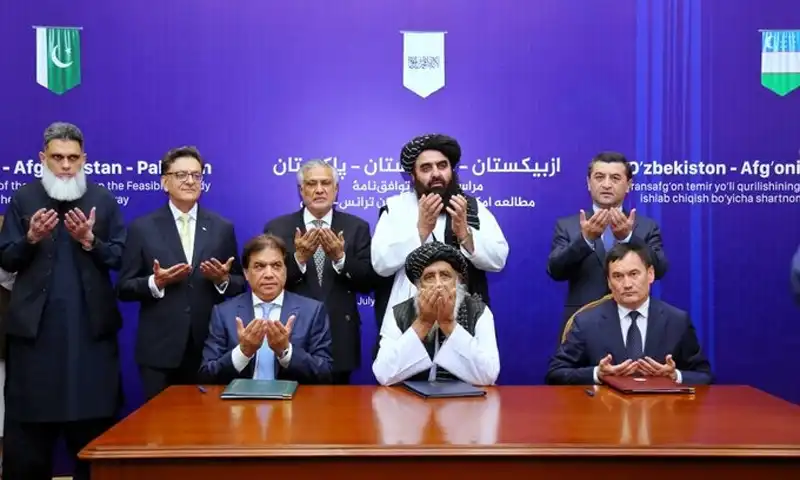Islamabad: Pakistan, Afghanistan, and Uzbekistan on Thursday signed the Framework Agreement for a joint feasibility study of the Uzbekistan–Afghanistan–Pakistan (UAP) Railway Corridor, marking a significant breakthrough in regional connectivity efforts aimed at linking Central Asia with Pakistani seaports.
Deputy Prime Minister Ishaq Dar, who led Pakistan’s delegation, announced the development on social media platform X, congratulating the governments and people of the three countries. “The signing of today’s agreement is a result of the leadership and commitment of the last PDM government (2022–23),” he said, crediting former Prime Minister Shehbaz Sharif for initiating the effort during Dar’s tenure as finance minister.
The agreement outlines plans to build the Naibabad–Kharlachi rail link, a strategic component of the UAP corridor. Once completed, the railway will connect Tashkent to Peshawar via Kabul, covering a total stretch of 573 kilometres at an estimated cost of $4.8 billion.
Dar emphasised the significance of the corridor, calling it a “major milestone in advancing regional connectivity and economic integration.” The railway is expected to enhance trade and transit access for Central Asian states while promoting stability and development in Afghanistan and the wider region.
Read More: Frontier Constabulary Becomes Federal Force After 110 Years
The deputy prime minister also expressed appreciation for the support of the Foreign Ministers of Afghanistan and Uzbekistan, noting that the parties had remained closely engaged through the negotiation process.
Dar was accompanied by a high-level Pakistani delegation, including the Minister for Railways, the Special Representative for Afghanistan, and the Secretary of the Ministry of Railways.
The UAP railway corridor — originally agreed upon in February 2021 — has recently gained renewed momentum, particularly following China’s expressed willingness to fund the project. Dar confirmed in May that Beijing has shown a positive response after direct engagement by Islamabad, which included the submission of a draft framework to both Afghanistan and Uzbekistan.
“This project, along with the Peshawar–Kabul Highway and ML-1 upgrades, will massively boost Pakistan’s connectivity to Central Asian Republics and enhance the commercial potential of our underutilised ports,” Dar said during a press conference after returning from Beijing, where he attended a China–Pakistan–Afghanistan trilateral foreign ministers’ meeting.
